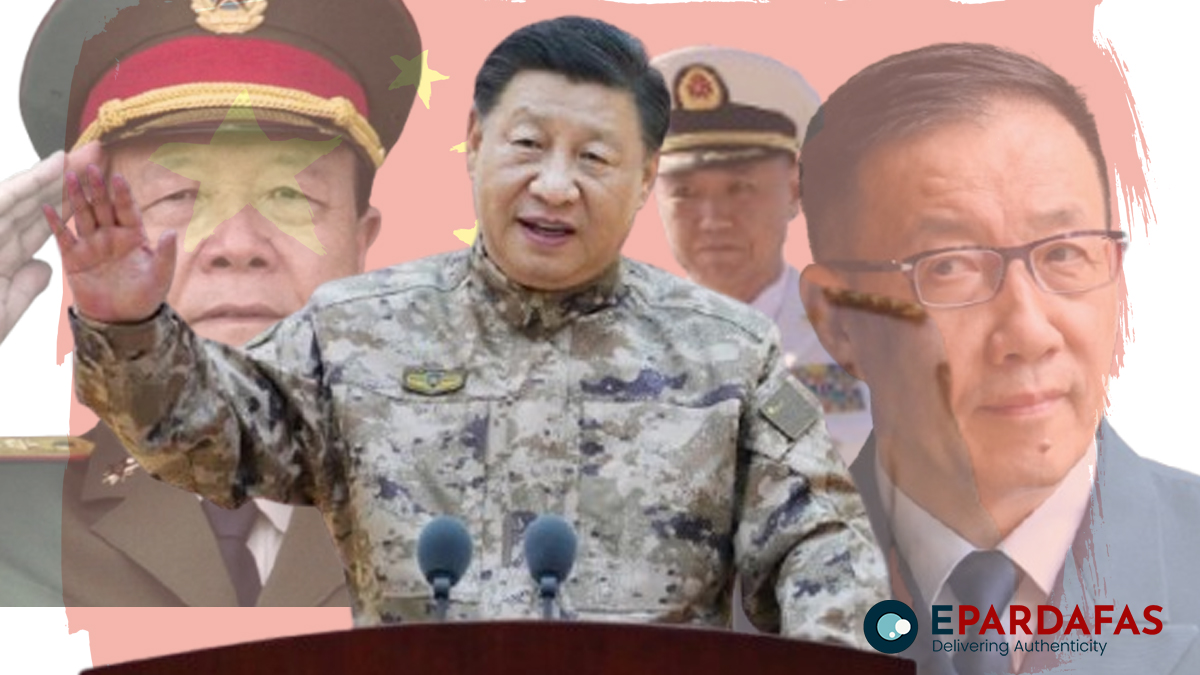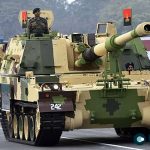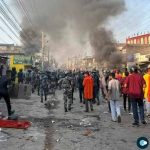
Miao Hua’s Suspension and Its Implications for Xi Jinping’s Power Consolidation
The recent suspension of General Miao Hua, a key member of China’s Central Military Commission (CMC), highlights the persistent turbulence within the Chinese military hierarchy and raises questions about President Xi Jinping’s hold over the People’s Liberation Army (PLA). The incident, framed against the backdrop of Zhuge Liang’s fabled disciplining of Ma Su, underscores Xi’s precarious balancing act between loyalty and discipline among his trusted allies.
A Strategic Move or a Forced Decision?
The announcement of Miao Hua’s suspension for “suspected serious violations of discipline” reflects a sudden and uncharacteristic decision-making process. Typically, the Chinese Communist Party (CCP) meticulously choreographs the communication of such politically sensitive matters, ensuring uniformity and consistency across state-run media. However, the delayed and subdued reporting of Miao’s suspension suggests an abrupt decision that may not have been part of a long-term plan.
This raises a critical question: was Xi forced to act due to mounting pressure within the party, or was this a calculated sacrifice to reinforce his anti-corruption narrative?
The Fujian Faction’s Rising Influence
Miao Hua’s close ties to the Fujian faction, one of the two main power bases supporting Xi, add another layer of complexity. The faction’s dominance over the Zhejiang faction has grown significantly, consolidating its influence under Xi’s leadership. However, Miao’s suspension might indicate internal fractures within Xi’s support network, as the move demonstrates that even a core member of the Fujian faction is not immune to disciplinary action.
If Miao’s suspension is indeed a response to internal accusations, it could signal that factions outside Xi’s orbit are gaining traction in holding influential figures accountable. This would mark a significant shift in the dynamics of Chinese elite politics, where loyalty has often been valued over transparency or discipline.
The Plausible Corruption Allegations
Miao’s suspected violations are likely tied to corruption, an issue that has plagued the PLA despite Xi’s extensive anti-corruption campaign since 2012. While Xi has previously targeted figures who were not firmly loyal to him, this is one of the rare cases where a trusted ally has been implicated.
The choice of the term jiancha (inspection) instead of diaocha (investigation) in the announcement is notable, as it suggests that Miao may avoid severe punishment. This stands in contrast to the harsh penalties meted out to former top officers Guo Boxiong and Xu Caihou, who were seen as disloyal to Xi and faced lifetime imprisonment and disgrace.
A Test of Xi’s Leadership
Miao’s suspension presents a critical test for Xi’s leadership. It exposes the limitations of his anti-corruption drive, which has often been criticized as a tool to eliminate rivals rather than address systemic issues. The move could also undermine morale within the PLA, particularly among those loyal to Miao or aligned with the Fujian faction.
Furthermore, Xi’s inability to shield Miao, despite their close association, may embolden factions or individuals within the CCP to challenge Xi’s authority. This incident could signal that Xi’s grip on power is not as absolute as it appears, especially in the sensitive realm of military politics.
Implications for the Military and Taiwan
Miao’s suspension occurs amid rising tensions in the Taiwan Strait and growing scrutiny of the PLA’s readiness and cohesion. As director of the CMC’s Political Work Department, Miao was responsible for ensuring loyalty to Xi’s leadership across military branches, including the navy—a critical component in any potential conflict over Taiwan.
The removal of such a high-ranking figure could disrupt the PLA’s political alignment and operational focus, especially as it pertains to Taiwan. It also raises questions about Xi’s broader strategy for maintaining control over the military at a time of escalating geopolitical tensions.
Conclusion: A Moment of Reckoning for Xi
The story of Zhuge Liang’s reluctant execution of Ma Su is a tale of discipline over personal loyalty, but Xi Jinping’s handling of Miao Hua’s suspension may not be viewed in the same light. Instead, it reveals cracks in the armor of Xi’s centralized authority and his factional support base.
While Miao’s suspension is unlikely to immediately alter the course of Chinese politics, it introduces uncertainty into Xi’s leadership narrative. The handling of this case—and its fallout—will be critical in shaping perceptions of Xi’s ability to govern an increasingly complex and fractured political and military landscape.













Comments